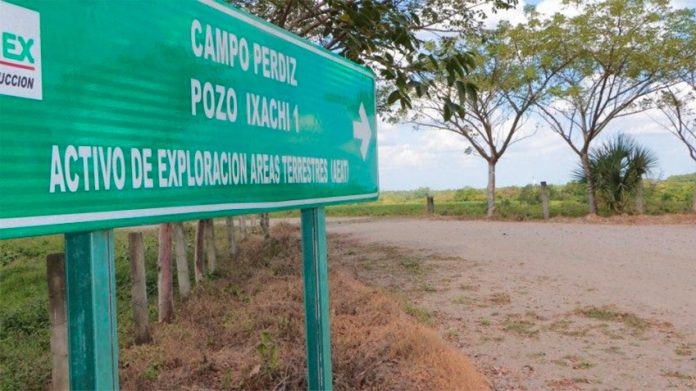The oil sector regulator has raised a red flag over the federal government’s decision to pour more money into an onshore field in Veracruz where the cost of extracting each barrel of crude will be slightly higher than the average per barrel price during the last week.
The government has given the green light to state oil company Pemex to invest US$87 million at the 47-square-kilometer Perdiz field over the next 14 years with the aim of extracting an additional 3.3 million barrels of heavy crude. Since 2014, Pemex has extracted 2 million barrels of crude from the field with an investment of $44 million.
The cost of crude extraction between 2020 and 2034 will be $24 per barrel, 10 cents higher than the average per barrel price of Mexico’s export grade oil mix over the past week.
The price has taken a hit due to the spread of coronavirus, growing pessimism over the impact the disease will have on the global economy and an oil price war between Saudi Arabia and Russia. It slumped more than 20% on Tuesday to $18.78, its lowest level in 18 years.
If crude prices remain low, the plan to extract an additional 3.3 billion barrels from the Perdiz field, located near the city of Tierra Blanca, would not be economically viable for Pemex, which already has debt in excess of $100 billion.
In that context, the National Hydrocarbons Commission (CNH), the oil sector regulator, urged the federal government to reconsider the oil price models it uses to evaluate the viability of projects.
The CNH said that the cost-benefit analysis for the planned future extraction at the Perdiz field was based on a per barrel crude price of $55, a figure three times the price a barrel of Mexican crude was selling for on Tuesday.
Even if the crude price were to increase to that level, future extraction at the Perdiz field would be only marginally profitable once Pemex’s per barrel tax burden is taken into account, the CNH said.
According to commission chief Néstor Martínez, predicting oil prices will become increasingly difficult due to market uncertainty and thus long-term plans, such as the 14-year one in Veracruz, must be constantly reviewed.
Source: El Economista (sp)
